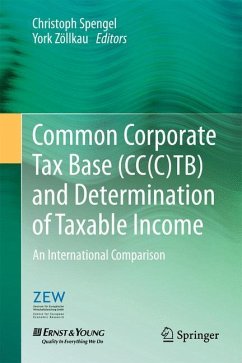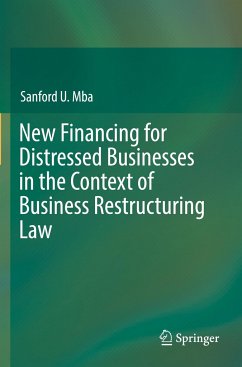
The Law of Corporate Finance: General Principles and EU Law
Volume II: Contracts in General
Versandkostenfrei!
Versandfertig in 6-10 Tagen
113,99 €
inkl. MwSt.
Weitere Ausgaben:

PAYBACK Punkte
57 °P sammeln!
1. 1 Investments, Generic Contracts, Payments According to Volume I, contracts are one of the five generic legal tools used to manage cash flow, risk, agency relationships, and information. Many investments are therefore based on one or more contracts. Obviously, the firm should draft good contracts. Good drafting can ensure the same intended cash flow with reduced risk. Bad drafting can increase risk. This volume attempts to deconstruct contracts used by non-financial firms and analyse them from a cash flow, risk, agency, and information perspective. The starting point is a generic contract, ...
1. 1 Investments, Generic Contracts, Payments According to Volume I, contracts are one of the five generic legal tools used to manage cash flow, risk, agency relationships, and information. Many investments are therefore based on one or more contracts. Obviously, the firm should draft good contracts. Good drafting can ensure the same intended cash flow with reduced risk. Bad drafting can increase risk. This volume attempts to deconstruct contracts used by non-financial firms and analyse them from a cash flow, risk, agency, and information perspective. The starting point is a generic contract, i. e. a contract which does not belong to any particular contract type (Chapters 2-7). This volume will also focus on payment obligations. Payment obligations are characteristic of all financial instruments, and they can range from simple payment obligations in minor sales contracts and traditional lending contracts (Chapters 8- 11). 1. 2 Particular Contract Types A number of particular contract types have been discussed in the other volumes of this book. (1) A certain party's investment contract can be another party's fu- ing contract. Particular investment contracts will therefore be discussed in Volume III in the context of funding. (2) Many contracts are necessary in the context of business acquisitions discussed in Volume III. (3) Multi-party contracts are c- mon in corporate finance. The firm's contracts with two or more parties range from syndicated loans to central counterparties' contracts. Such contracts will be discussed both in Chapter 12 and Volume III.














